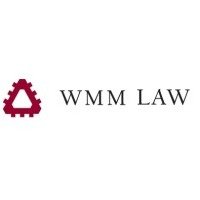Best Tax Lawyers in Hobart
Share your needs with us, get contacted by law firms.
Free. Takes 2 min.
List of the best lawyers in Hobart, Australia
Australia Tax Legal Articles
Browse our 1 legal article about Tax in Australia written by expert lawyers.
- How to Start a Business in Australia: A Simple Guide and How a Lawyer Can Help
- Australia is known for its vibrant economy, supportive government policies, and high quality of life, making it an attractive destination for entrepreneurs looking to start a business. Whether you're launching a small local shop or a large-scale enterprise, Australia offers a range of opportunities for growth and success.However, starting a... Read more →
About Tax Law in Hobart, Australia
Tax law in Hobart, as in the rest of Australia, encompasses a wide range of legal principles that govern the taxation process at both the state and federal levels. The laws dictate how taxes are imposed on individuals and businesses, collected, and enforced. Australia operates a progressive tax system, meaning tax rates increase as income increases. Key taxes include income tax, goods and services tax (GST), and corporate tax, among others. Understanding the nuances of tax law in Hobart is essential for compliance and strategic financial planning.
Why You May Need a Lawyer
There are several situations where individuals or businesses in Hobart might require the expertise of a tax lawyer. These include, but are not limited to, tax disputes and audits, complex tax planning and structuring, estate planning, business acquisitions or sales, and international tax issues. Legal advice can help ensure compliance with all applicable tax laws, mitigate risks, and develop strategies to minimize tax liabilities.
Local Laws Overview
In Hobart, tax laws are influenced by both state-level legislation and federal laws applicable across Australia. The Australian Taxation Office (ATO) is the primary agency responsible for tax administration and enforcement. Businesses must comply with the Business Activity Statements (BAS) reporting for GST, PAYG, and other obligations. Furthermore, Tasmania's state government imposes additional taxes, such as land tax and payroll tax, which are pertinent to dealings in Hobart. It's important for taxpayers to be aware of these laws and how they interact with federal tax obligations.
Frequently Asked Questions
What is the deadline for lodging my tax return in Hobart?
The deadline to lodge individual tax returns in Hobart is generally October 31st following the end of the financial year on June 30th. However, if you are using a registered tax agent, the deadline may be extended.
How is GST applied to goods and services in Hobart?
A 10% goods and services tax (GST) is applied to most goods and services sold or consumed in Hobart. Businesses with a turnover above $75,000 must register for GST and complete regular BAS returns.
What should I do if I receive a tax audit notice from the ATO?
Receiving a tax audit notice can be daunting. It is advisable to engage a qualified tax lawyer or accountant to help review your financial records, address the ATO's queries, and ensure that you provide accurate information.
Can I claim deductions for work-from-home expenses?
Yes, individuals working from home in Hobart may be eligible to claim deductions for certain expenses such as electricity, internet, and stationery. It's important to maintain accurate records and follow ATO guidelines on claims for work-from-home expenses.
What are the penalties for late tax filings?
Penalties for late tax filings can include failure to lodge on time penalties, interest charges on unpaid tax, and potential audits. It's crucial to lodge returns and pay taxes on time to avoid these penalties.
How does land tax work in Hobart?
Land tax is a state tax applied annually to the total unimproved value of land you own in Tasmania, excluding your principal residence. Rates vary based on the land value and are determined by the Tasmanian State Revenue Office.
What are the tax implications for selling property in Hobart?
Selling property in Hobart may incur capital gains tax (CGT) on the profit made from the sale. Exemptions and concessions may apply, such as the main residence exemption.
Is superannuation taxable in Hobart?
Superannuation itself is generally subject to concessional tax rates, but withdrawals upon retirement may also have tax implications, depending on the timing and nature of the withdrawal.
What obligations do I have for payroll tax in Hobart?
Employers in Hobart with a payroll exceeding the state threshold are required to register for payroll tax. The current threshold and rate are set by the Tasmanian government and may be subject to change.
How can I ensure tax compliance in Hobart?
Ensure tax compliance by keeping accurate records, staying informed about tax legislation changes, lodging tax returns on time, and consulting with tax professionals as needed.
Additional Resources
For more help with tax matters, the following resources may be useful:
- The Australian Taxation Office (ATO) - Australia's principal tax regulatory body
- Tasmanian State Revenue Office - for state taxes like land and payroll tax
- Local tax accountants and registered tax agents for professional advice
- Law Society of Tasmania for legal referrals and resources
Next Steps
If you seek legal assistance with tax matters in Hobart, start by consulting a qualified tax lawyer or accountant. They can provide tailored advice and represent you in negotiations or disputes with tax authorities. Consider scheduling an initial consultation to discuss your specific tax situation and explore legal strategies that can support your financial goals while ensuring compliance with all applicable laws.
Lawzana helps you find the best lawyers and law firms in Hobart through a curated and pre-screened list of qualified legal professionals. Our platform offers rankings and detailed profiles of attorneys and law firms, allowing you to compare based on practice areas, including Tax, experience, and client feedback.
Each profile includes a description of the firm's areas of practice, client reviews, team members and partners, year of establishment, spoken languages, office locations, contact information, social media presence, and any published articles or resources. Most firms on our platform speak English and are experienced in both local and international legal matters.
Get a quote from top-rated law firms in Hobart, Australia — quickly, securely, and without unnecessary hassle.
Disclaimer:
The information provided on this page is for general informational purposes only and does not constitute legal advice. While we strive to ensure the accuracy and relevance of the content, legal information may change over time, and interpretations of the law can vary. You should always consult with a qualified legal professional for advice specific to your situation.
We disclaim all liability for actions taken or not taken based on the content of this page. If you believe any information is incorrect or outdated, please contact us, and we will review and update it where appropriate.









